How to Prepare for Homesteading
You are ready to be more self-sufficient, but you are not sure where to start. This article on How to Prepare for Homesteading will get you moving and planning quickly.
Wherever you can find homesteading tips make a note because they can be gems that you can use to grow your skills.
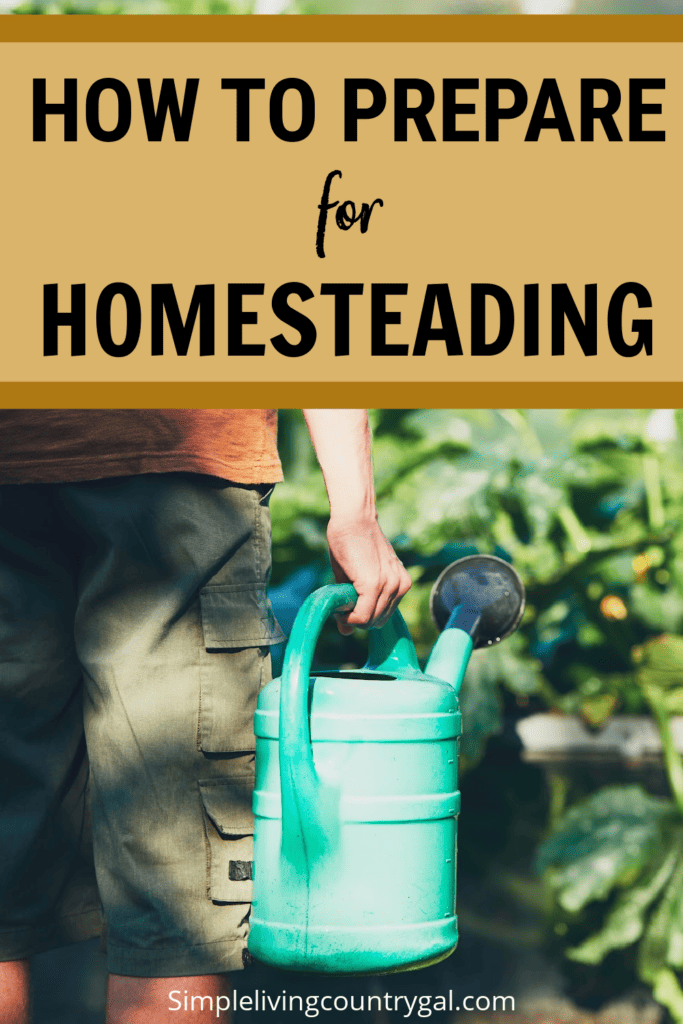
There was a time when homesteading meant that you owned a patch of land in the middle of nowhere with dirt roads as your only path in and out. It often meant you had a full-functioning farm with tractors, cows, pigs, and even goats. Before, just the word homestead brought to mind outhouses and wood floors.
I am happy to say that this is no longer true.
Today, homesteading covers all levels of self-sufficiency in all areas of the world. It can mean something as simple as growing a few vegetables in your backyard or having a chicken coop out back with enough hens to enjoy fresh eggs daily.
Essentially, homesteading is a self-sufficient lifestyle that can include growing vegetables to preserving food, raising livestock, and everything in between.
Simply put, it comes down to this. Make it, grow it, or raise it so you don’t have to buy it.
Homesteading can be a way of living or just a weekend hobby, depending on how much time you want to devote and how much space you have available.
READ: How to Start a Homestead
There are plenty of benefits to homesteading, including:
· Saving money by growing or raising your own food.
· Giving you a sense of purpose for yourself and your family.
· A source of exercise and fresh air which is good for both your body and your mind.
· A possible homestead exemption that can reduce the taxable value of your primary residence, lowering your property tax rate.
· In many states, homesteading can also protect your home from creditors in bankruptcy or when dealing with the death of a spouse.
· Provides you with independence.
· Offers healthy, organic, pesticide-free food options.
· Income opportunities when selling your own vegetables, eggs, livestock, and meat.
Homesteading Books we Love:
Heaven’s Harvest Survival Seed Bank Kit (Over 25,000) Fruit & Vegetable Non-GMO Heirloom Seeds for Planting a 3+ Acre Home Garden. 100% Secure: Emergency Weather-Proof Bucket (1-Pack)


What Mindset to Consider When It Comes to Homesteading
While homesteading can require daily work, its core is about creating more simplicity in life. The mindset you have when approaching it is an important factor in your success. Keep a positive attitude at all times, and you will find your homesteading journey rewarding.
A few things to keep in mind.
- You will be dealing with a variety of problems, and remembering that each struggle and setback is an opportunity to learn will keep you in the right headspace. Rather than getting angry, look for the lesson and make a note so you remember next time.
- Animals can be stubborn, meaning you will need loads of patience when dealing with them. When you find yourself getting frustrated, stop and take a breath. Remind yourself they are only animals and focus on leading rather than forcing them.
- Now, all vegetables flourish in a garden. Again, look for the struggle, research the remedy, and keep detailed notes as you work to solve issues.
- Be open to new ideas and approaches. Many times you will learn lessons from others, be open to hearing them, do your research, and decide if you want to try them.
Homesteading can be therapeutic, but you’ll need to approach it with a calm and mindful attitude if you want to be successful.
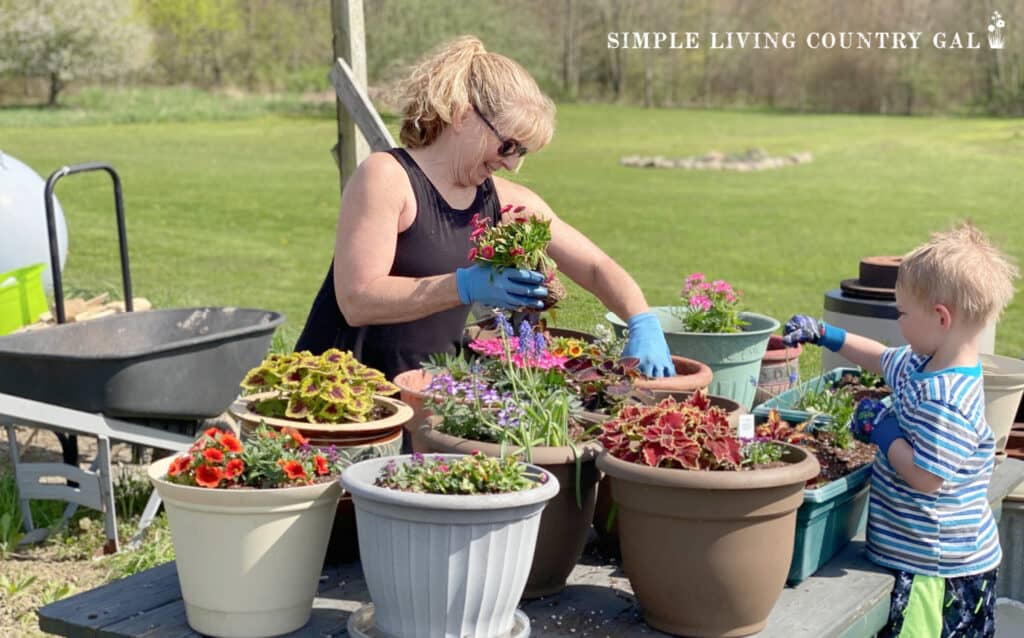
How Much Time Is Needed to Have a Homestead
The answer to this question relies solely on how big of a farm or garden you want to raise. A simple vegetable garden will require several hours of hard work during planting season, but then the time needed falls back to just a few hours a week for routine maintenance. The time investment will pick up once again at harvest time.
If you’re considering a full farm with livestock and vegetables, you can count on it being a part-time to even a full-time job. The animals will need daily care and feeding, sometimes more than once a day. A larger garden will require more time to plant, water, fertilize, prune, get rid of insects, protect against pests, and harvest.
If you’re not sure if it’s right for you, your best option is to start small and grow from there.
Begin with a few vegetables and herbs to see how much time it takes, then decide if you want to add more the following season. The nice thing about homesteading is that you can start small and grow as much or as little as you like from there.
What Results Can You Expect When You Start Homesteading
Homesteading is good for both your mental well-being and providing for your family. Gardening and raising livestock can bring you calm and peace, almost like meditation. Growing vegetables, raising chickens for fresh eggs, and raising livestock to eat or sell will give your family plenty of food, milk, cheese, and even some extra income.
Along the way, you can expect to learn new skills like problem-solving, resourcefulness, and planning. As you continue to succeed, you’ll also build your self-confidence and find some pride in your accomplishments.
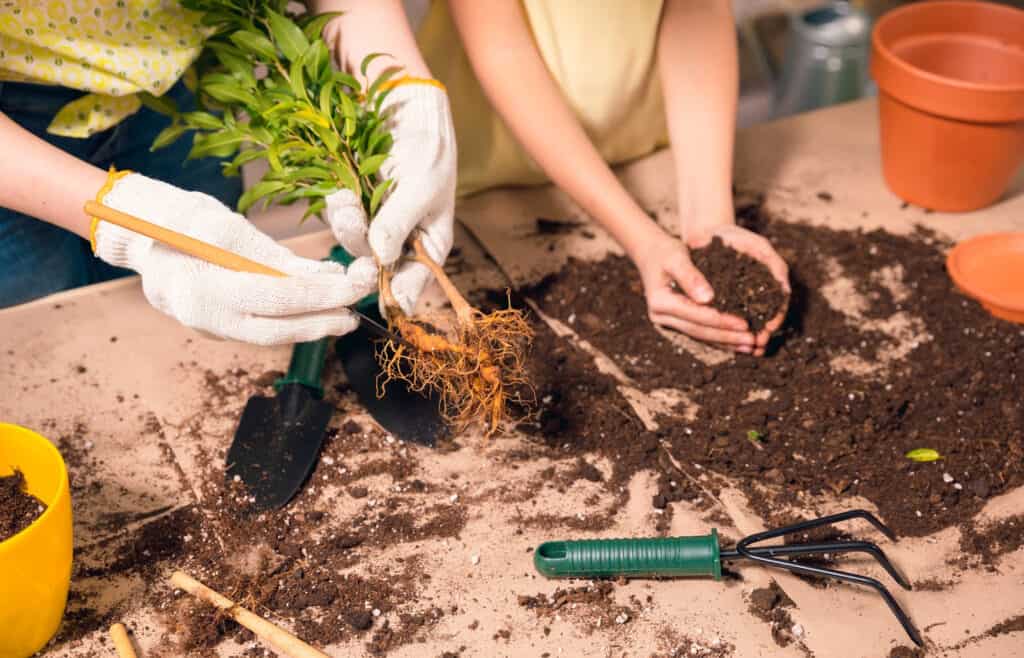
What You Need to Get Started
There are several things to consider before you begin homesteading. Let’s go over a few to help better prepare you for a life of self-sufficiency.
Consider your space.
First and foremost, it’s important to remember that you don’t need a lot of farmland to start homesteading; a small garden plot in your backyard or even some growing containers on your deck are plenty to get you started.
More Container Gardening Resources:
Prepare for Raising Chickens
If you want to raise chickens, you will want to ensure you have room to raise them healthily. Chickens need about 10 square feet each to ensure they have enough room to flourish. You will also need to have a coop for protection at night. You can purchase a coop or buy inexpensive chicken coop plans and build one yourself.
More Chicken Coop Resources:
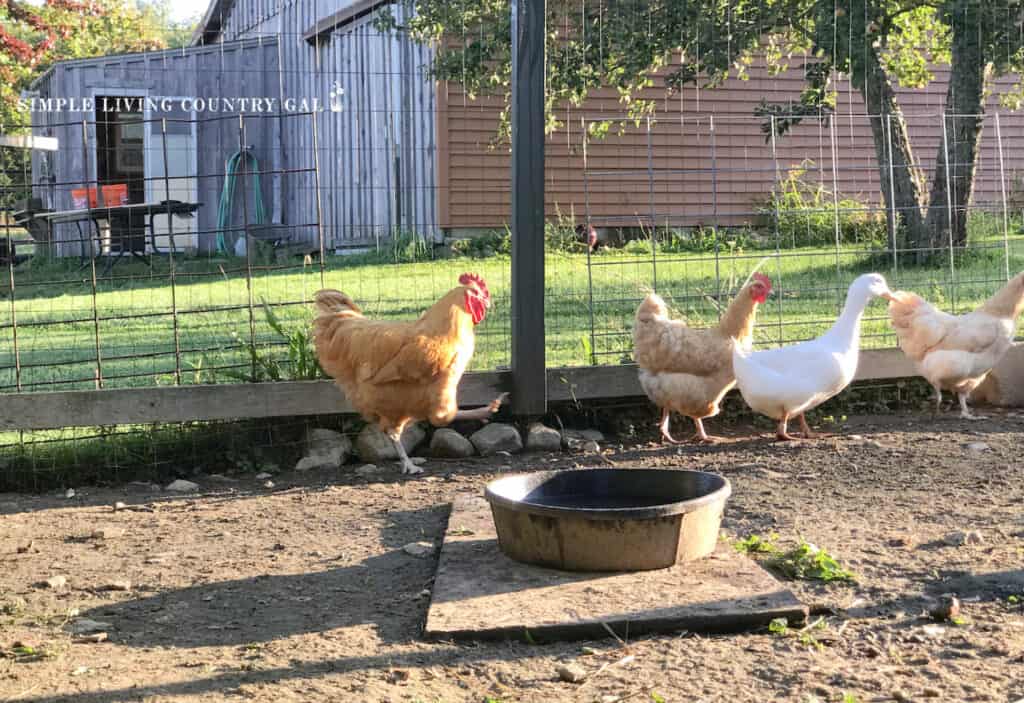
Prepare for Gardening
Do you want to grow a few vegetables in containers to feed your family for the summer or a big plot of land giving you enough product to sell for a profit?
If you want more, before you break ground for a backyard garden, take time for additional planning, this time thinking about how you will grow your plants.
Some vegetables and herbs don’t grow well next to others, while some support each other and even thrive together. Some vegetables take a lot of space, and others take very little. Do you want to have room for a compost area? Keep this in mind while deciding where to locate your backyard garden. Plan your garden, how much space you’ll need, and where everything will go.
More Companion Planting resources:
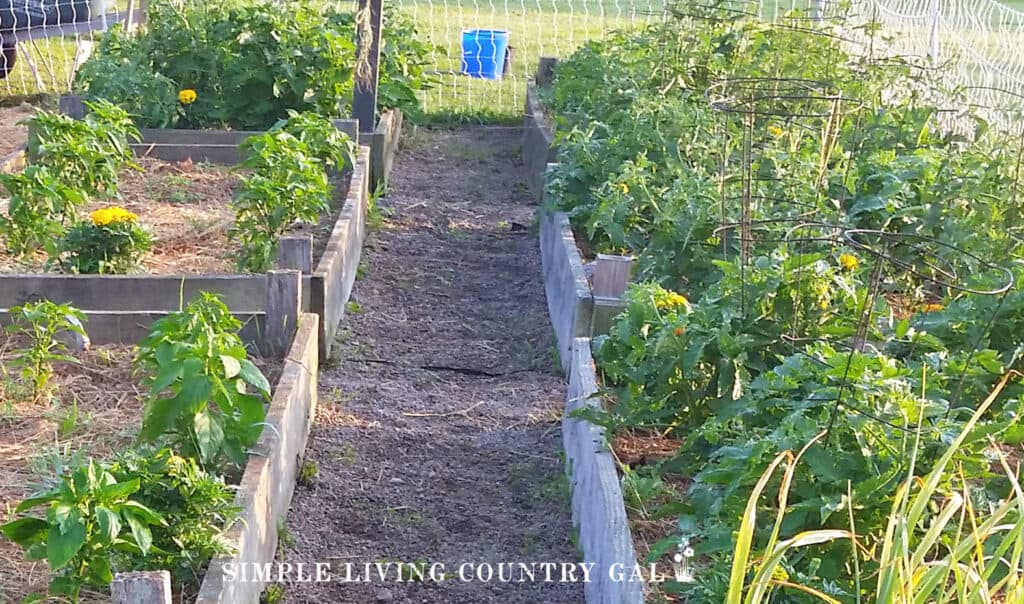
Next, you’ll need to do a little research to see if your initial garden area gets the sun needed to grow throughout the day. Set a reminder on your phone to check the sun in the morning, mid-afternoon, and finally, again in the early evening. Most plants need 8 hours of sunlight each day to grow.
Don’t forget the water. Is the location you are considering near a water source? If not, can you set up a rain barrel to help catch water to make this chore easier? You can purchase one or DIY a rain barrel yourself.
Is the soil constantly wet and flooded? Look for an area with average soil moisture near a source of water for easier chores. How you water your plants throughout the growing season will better determine the quality of your harvest.
Next, do check the pH level of your soil. Make a note of what that number is in your gardening planner. This is important so you can better determine what plants will flourish where. Some plants need acidic soil, while others don’t. Test the soil early so you have enough time to amend it before planting.
Preparing for Livestock
Goats, sheep, rabbits, or pigs are all great animals to raise on a homestead. Each one, however, has its own requirements for housing and outdoor spaces. A good place to start deciding is to ask yourself what your end goal will be.
What Do Livestock contribute to a homestead:
- Pigs give meat or can be sold as babies.
- Goats give meat and milk or can be sold as babies.
- Sheep give meat, milk, and fleece or can be sold as babies.
- Rabbits give meat or can be sold as babies.
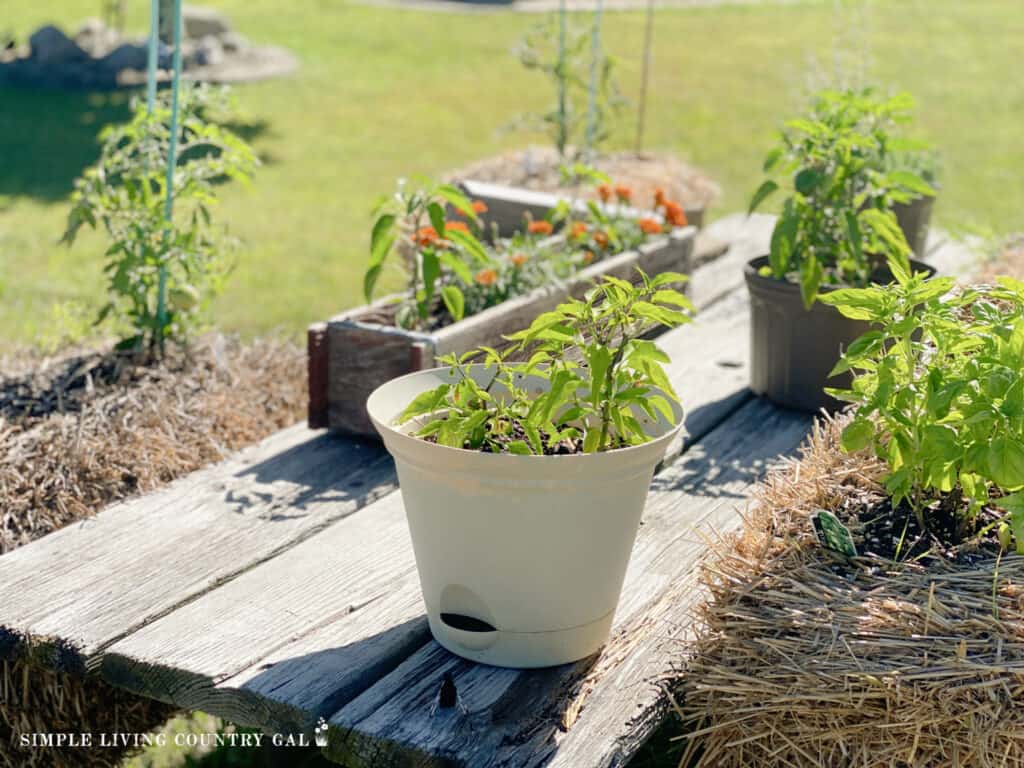
Do some research to see what contribution will benefit your family most. Once you decide, you can look to see what shelter you will need, along with grazing areas, food needs, and basic supportive care.
Remember, before you begin, you will need to see if there are any county or neighborhood regulations about what you can and can’t have on your property. Some areas don’t allow livestock which may include chicken coops.
Prepare Your Homesteading Budget
Determine your budget so you know how much you can spend. Each part of homesteading has a startup cost ranging from small to large. Set a budget for each area and work to find the most frugal way to get started.
Ways to Save Money on Starting a Homestead
- Visit yard or garage sales for tools.
- Read Facebook Marketplace or Craigslist for animal shelters or fencing.
- Ask neighbors or friends if they have any items they wish to get rid of.
- Look to rent large equipment rather than purchase.
- Ask at your county extension office or local feed mill if anyone is selling the livestock you want. When you purchase from a trusted farmer, you will also get access to their knowledge.
Homesteading and Gardening Deals!
Lastly, start small until you feel comfortable with how much time and effort it takes. You can always grow, but you don’t want to overwhelm yourself from the beginning.
Homesteading is a great way to become self-sufficient and enjoy the fruits of your labor. I hope you found this article on how to prepare for homesteading helpful. Get the whole family involved and start growing today.




